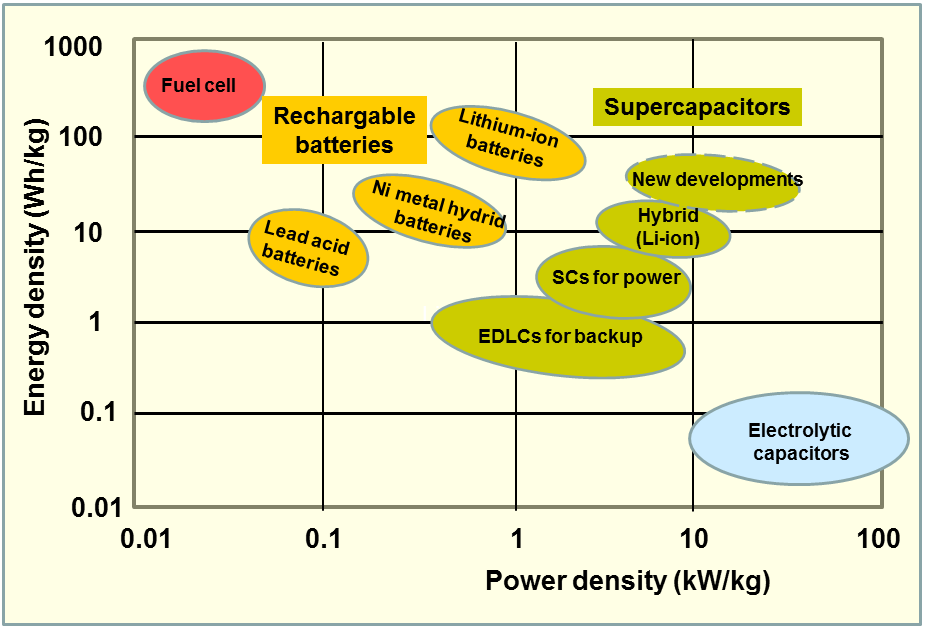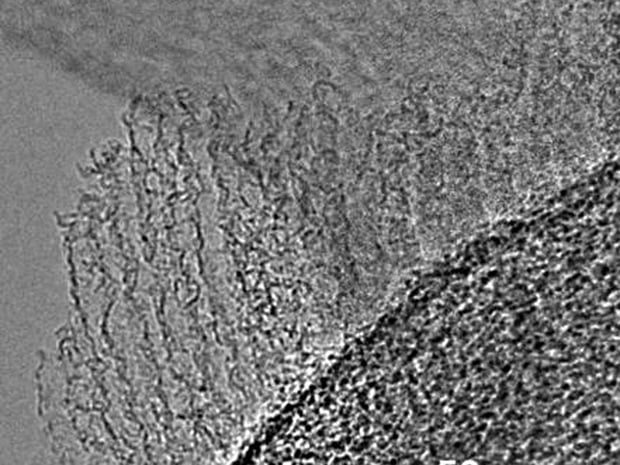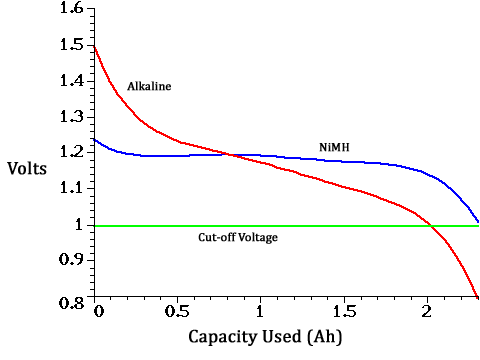Supercapacitors
Supercapacitors are based on regular capacitors with very high energy storage and which can transfer that energy very rapidly. This means you can get rapid energy delivery and also rapid charging. This makes them the ideal complement to batteries which can store much larger amounts of energy but which cannot be charged as rapidly and may also not be able to deliver the energy rapidly enough.
This is why Supercapacitors and batteries are being combined to Make Batteries Better.
But what if they could eventually replace batteries?
Better Supercapacitors
One thing holding back Supercapacitors from replacing batteries is their total storage capacity. At present, the best supercapacitors can still be a factor of 10 smaller in energy storage.
Recent breakthroughs have shown that Carbon Nano-Structures can significantly improve the storage density and total capacity of Supercapacitors.
Building on this, the most recent breakthrough adds Nitrogen to the mix and shows that Nitrogen can Triple Supercapacitor Energy Density. This gets us to within a factor of three of battery storage capacity and opens up the possibility that Supercapacitors could replace batteries completely in some applications. Especially if you want either very rapid charge or lots of charge cycles. Batteries cannot compete with Supercapacitors in either of these areas.
Capacitors still have one characteristic that makes them less desirable as energy sources that batteries.
Batteries maintain their voltage in a narrow range for most of the energy delivery they provide. The slope varies with capacitor type as is shown above for a comparison of Alkaline and Nickel Metal Hydride (NiMH) batteries. Whereas a capacitor is a straight line with the voltage falling in proportion to the amount of energy extracted. And the reverse for charging the capacitor.
Supercapacitor Applications
Some obvious application arise for the next generation of Supercapacitors:
- augmenting batteries even further than they do now – especially in high demand applications like automotive
- anything that needs very rapid recharging
- anything that needs a large number of recharge cycles (a key weakness of Lithium based batteries)
- anything that needs extended life (10 year life requires specialised battery types even now)
- removing the recycling problems for batteries
Successful Endeavours specialise in Electronics Design and Embedded Software Development. Ray Keefe has developed market leading electronics products in Australia for nearly 30 years. This post is Copyright © 2016 Successful Endeavours Pty Ltd.






